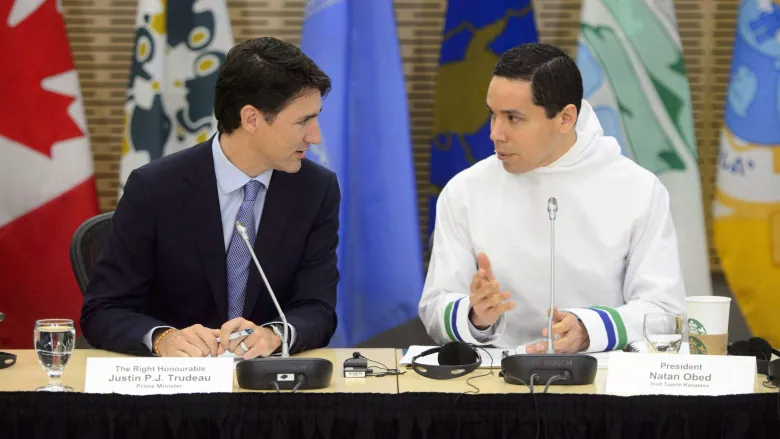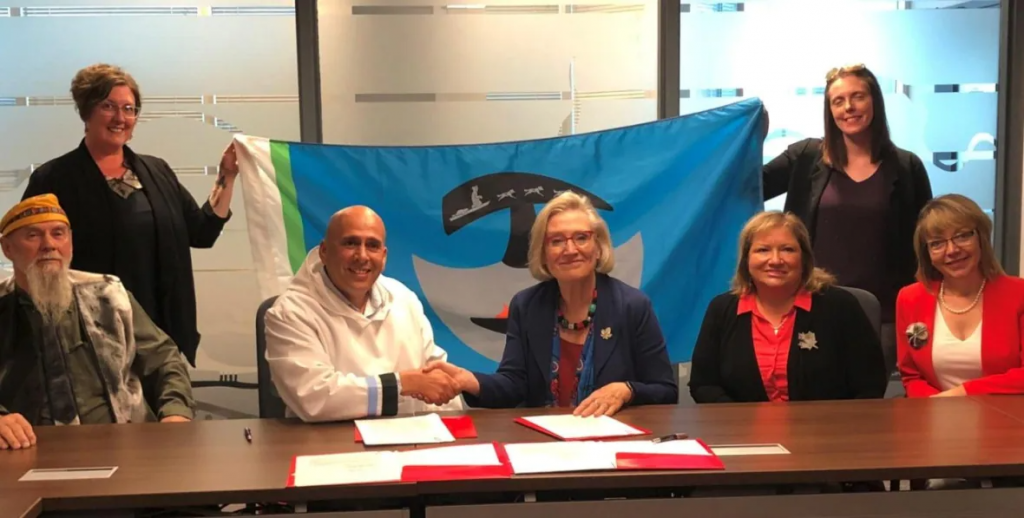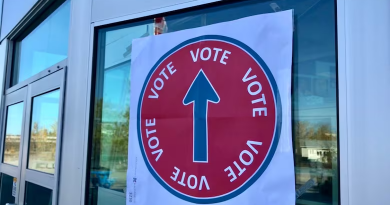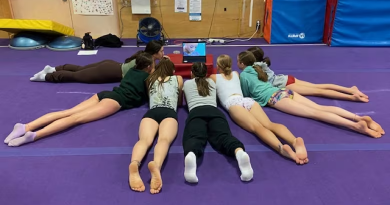NunatuKavut community council in Canada accused of not being an Inuit organization, as identity tensions escalate

Inuit Tapiriit Kanatami rejects NCC’s status as separate Inuit organization
Tensions around who is Inuit in Labrador —and what benefits they’re entitled to from the federal government — have escalated to national levels and the office of the prime minister.
Inuit Tapiriit Kanatami, which represents Inuit in Canada, sent a letter Oct. 7 to Justin Trudeau, rejecting the NunatuKavut community council’s stance as a separate Inuit organization. In it, ITK calls for the federal government to exclude the NCC from any federal Inuit programs, policies, and benefits.
It is “alarming that NCC has gained eligibility for federal programs and initiatives based on its assertion that it is an Inuit organization,” states ITK’s letter, signed by president Natan Obed and released publicly Tuesday.
The letter says it’s both “perplexing and alarming” that the federal government is talking to NCC with the potential for it to receive rights and territory “on the basis of assertions that appear unfounded.”
The NCC and Ottawa signed a memorandum of understanding in 2019, to discuss a range of items from health care to a land claims agreement. The NCC says it represents about 6,000 Inuit and people of Inuit descent in southern and central Labrador; it was known as the Labrador Métis Council until 2010, when it changed its name to reflect its members’ heritage.
That memorandum sparked backlash from the Innu Nation, which represents Innu in Labrador, and Nunatsiavut, covering Inuit in northern Labrador — one of Canada’s four Inuit regions collectively known as Inuit Nunangat. In September both groups rejected NCC’s land claim, although the Nunatsiavut government said NCC may have some Indigenous members.

ITK’s letter follows Nunatsiavut’s lead, saying “an Inuit territory outside of the four regions that constitute Inuit Nunangat does not exist.”
In an interview Wednesday, Obed said ITK’s position stems from both academic research and Inuit oral history.
“The very logic of it, that we could be working towards land claims in this country from the 1970s on, and that somehow in 2010 there would be a new Inuit collective that other Inuit regions just didn’t know about — that is a really hard thing to accept,” he said.
In a statement released late Wednesday afternoon, the council said ITK has “no authority to deny NunatuKavut Inuit access to much needed federal programs and services.”
“It is appalling and repulsive that they would choose to write such an ill-informed and discriminatory letter about NCC and our people and without our knowledge,” the statement reads.
“The ITK does not have the right to unilaterally determine Inuit identity, nor how NCC should be recognized by the federal government. ITK’s reliance on Eurocentric and outdated archeological and historical research about our presence in Labrador is false and is counter to ITK’s own principles of self-determined research.”
Labrador MP Yvonne Jones, an NCC member who has publicly defended the council — and who had to defend her own Inuk identity earlier this year — did not reply to requests for comment. NCC president Todd Russell was not available for an an interview.
The NCC said it has invited Obed to NunatuKavut multiple times and encouraged him “to learn about NunatuKavut Inuit, our history and our stories of connection.”
The group said the offer is still open.
“It is clear that greater understanding is needed now more than ever,” reads the statement.
‘There is so much at stake’
The ITK letter slammed the federal government’s process for dealing with the NCC, saying it “sets an alarming and disturbing precedent,” for others “with fraudulent claims to a historical Indigenous heritage.”
“This is one of the defining issues of the 21st century when it comes to Indigeneity and self-identification of Indigeneity,” Obed told CBC Radio’s Labrador Morning.
It’s an issue cropping up across Canada and spans Métis, First Nations and Inuit groups, he said.
“There is so much at stake now, and there are so many ways in which groups can benefit from Indigenous status, that this is just something that we’re going to have to work with and have to try to really clearly articulate where we stand on this issue,” he said.
To Obed and ITK, the stance is clear. Part of Inuit self-determination, he said, is the ability to define its membership, “and that is what we are doing here.”
Obed said Ottawa’s interactions with NCC forces Indigenous people “to define ourselves in relation to what the federal government has chosen,” and expanding the definition of who Inuit are “creates confusion.”
Expanding that definition doesn’t correlate to expanding federal programs and funding for Inuit, said Obed. He and ITK want assurances that NCC is not allowed to access Inuit-specific resources from the federal government, now or in the future.
“These are finite resources. These are programs and services desperately needed, and we just need to make sure that Inuit are benefiting from these opportunities,” he said.
ITK hasn’t spoken to any federal government representatives since the letter was sent, but Obed said he expects those conversations are coming.
In a statement, a spokesperson for the federal department of Crown-Indigenous Relations and Northern Affairs said the goal of discussions is to find “shared and balanced solutions that advance reconciliation in a way that respects the interests of members of NCC and all Canadians.”
“Should an Indigenous group’s rights, including asserted rights, be adversely affected by the product of these discussions, the Government of Canada will consult as appropriate,” the statement reads.
-With files from Labrador Morning
Related stories from around the North:
Canada: Labrador MP slams Innu leadership in legal spat over NunatuKavut Inuit self-determination, CBC News
Norway: Sami education conference looks at how to better serve Indigenous children, Eye on the Arctic



